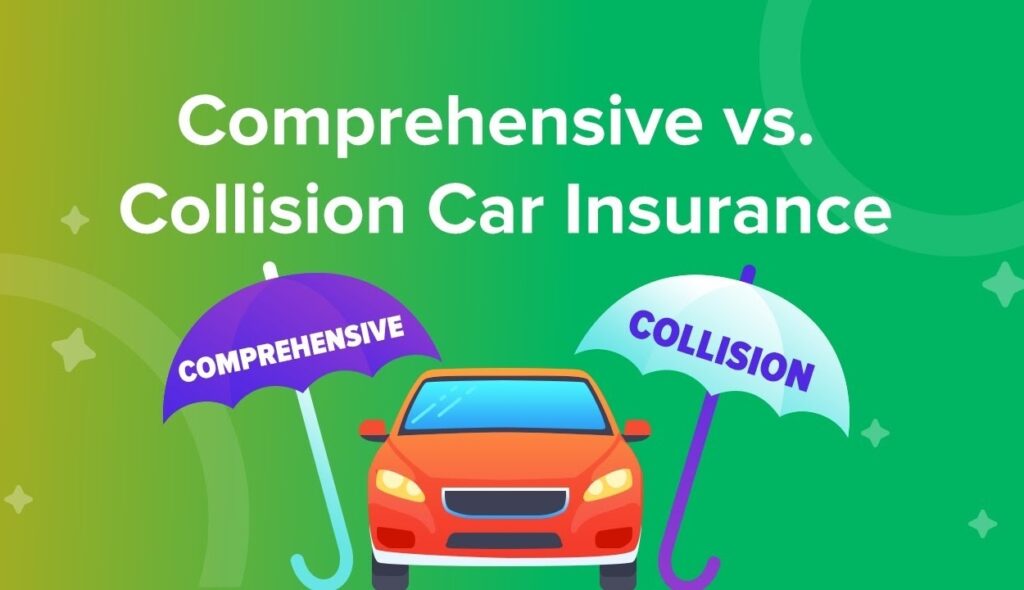Comprehensive vs collision car insurance

Understanding the difference between comprehensive and collision insurance is crucial for car owners looking to protect their investment. Both types of coverage offer unique benefits and safeguard against distinct risks.
In this post, we will delve into the nuances of comprehensive collision insurance, offering guidance to help you choose the appropriate coverage for your vehicle and driving habits.
What Is Comprehensive Collision Insurance?
Often grouped together, comprehensive collision insurance actually refers to two separate types of coverage. Comprehensive insurance protects against damages not caused by a collision, such as natural disasters, theft, or vandalism. Collision insurance, on the other hand, covers damages to your vehicle that result from a collision, whether it's with another vehicle or an object like a tree or a pothole.
Having both types of insurance can offer peace of mind to drivers by providing broad protection for a variety of incidents that could damage your vehicle. While neither is legally required by state laws, they are often required if you lease or finance your car.
It's important to understand that both comprehensive and collision coverage come with a deductible, which is the amount you'll pay out-of-pocket before your insurance kicks in. Choosing the right deductible amount can influence your premium and the level of financial protection you receive.
The Specifics of Comprehensive Insurance
Also known as "other than collision" coverage, comprehensive insurance is designed to cover events that are out of your control. This might include natural events like hail storms or floods as well as theft, falling objects, and collisions with animals. If you're not at fault, comprehensive coverage can save you from footing the entire bill for repairs or replacement of your vehicle.
Drivers need to assess the likelihood of these events based on their geographic location and the places they commonly park their vehicle. For example, in areas prone to extreme weather or high crime, comprehensive insurance is highly recommended.
Understanding Collision Insurance
When your vehicle is damaged as a result of flipping over, or colliding with another vehicle or fixed object, collision coverage comes into play. It is especially useful when you're at fault in an accident, as it covers the repair costs of your own vehicle, unlike liability insurance which only covers damage to others.
One should consider the age and the value of their vehicle when opting for collision coverage. For older cars, the coverage might not be cost-effective as the premiums could outweigh the potential benefits.
Do You Need Both Comprehensive And Collision Insurance?
Deciding whether to purchase both types of coverage depends on several factors including the value of your car, your financial situation, and your personal tolerance for risk. While carrying both can provide the most protection, it might not make sense for everyone, especially if the vehicle's value is low and you have the means to cover potential losses out of pocket.
How to Choose the Right Deductible
The deductible is a key component in your insurance policy. A higher deductible typically means a lower premium, but it also means you'll pay more out of pocket in case of a claim. Conversely, a lower deductible will cost you more in premiums but less when you need to use the insurance.
You’ll have to strike a balance between monthly affordability and financial readiness to cover the deductible should an incident occur. Consider your financial security and how much you're willing and able to pay as a lump sum in the event of a claim.
Factors Influencing the Cost of Comprehensive Collision Insurance
Your driving record, the make and model of your vehicle, and even your credit score can affect the cost of your comprehensive collision insurance. Insurance companies use these factors to assess the likelihood of you filing a claim and thus determine your rates.
Combining Insurance with Other Policies
Bundling your comprehensive collision insurance with other policies such as liability coverage can often lead to discounts and more favorable terms. This strategy could be a way to get comprehensive protection while managing the costs.
What to Do in Case of an Accident
If you're involved in an accident, the first step is to ensure everyone's safety and report it to the authorities as necessary. Then, contact your insurance provider to report the incident. They will guide you through the claims process and help you understand what is covered under your comprehensive collision insurance.
When to Review or Change Your Coverage
It's wise to review your insurance policy annually or after significant life events, such as moving to a new state or buying a new car. As your circumstances change, your insurance needs may evolve, and staying on top of these changes can ensure you're always adequately covered.
Upgrading or downsizing your coverage can often save you money or provide better protection based on your current situation.
In conclusion, understanding comprehensive collision insurance is essential for vehicle owners. Whether you need one or both types of coverage will depend on a variety of factors that are unique to your personal and financial situation. By evaluating your needs and comparing options, you can secure the right coverage that provides peace of mind and financial security on the road.

Related